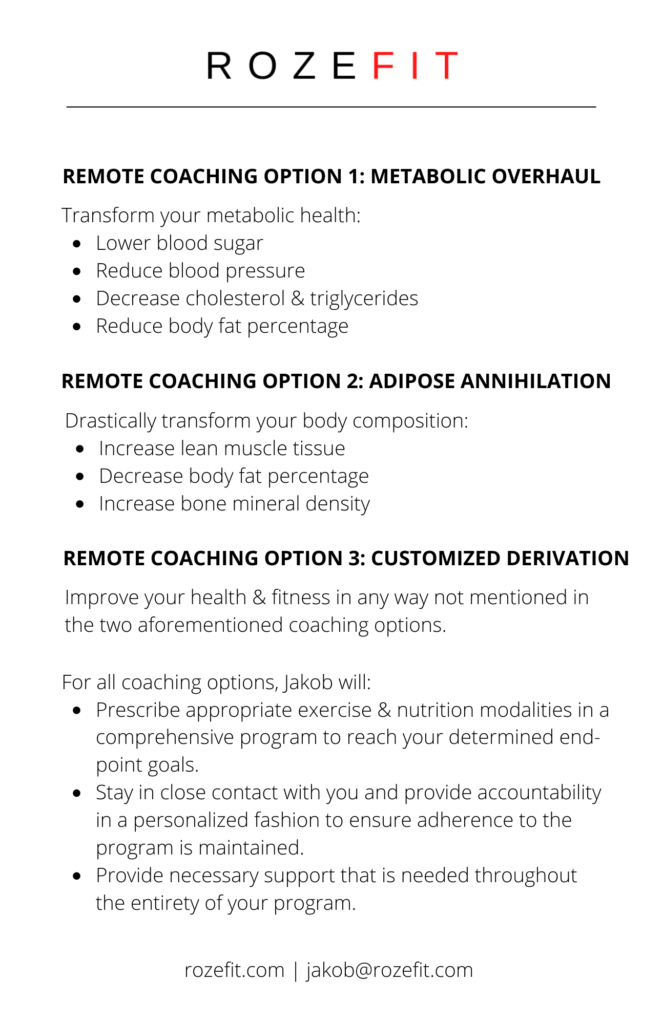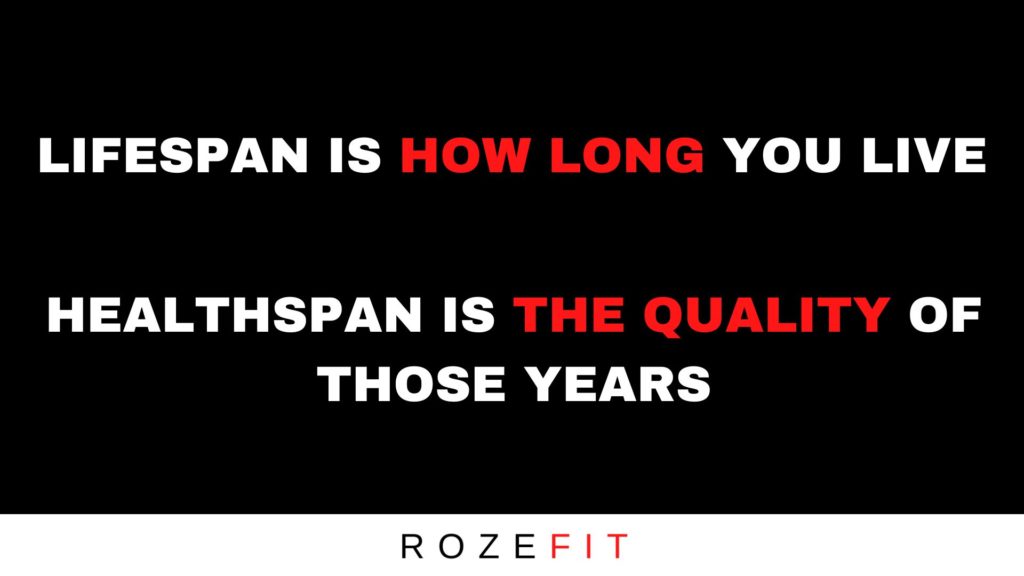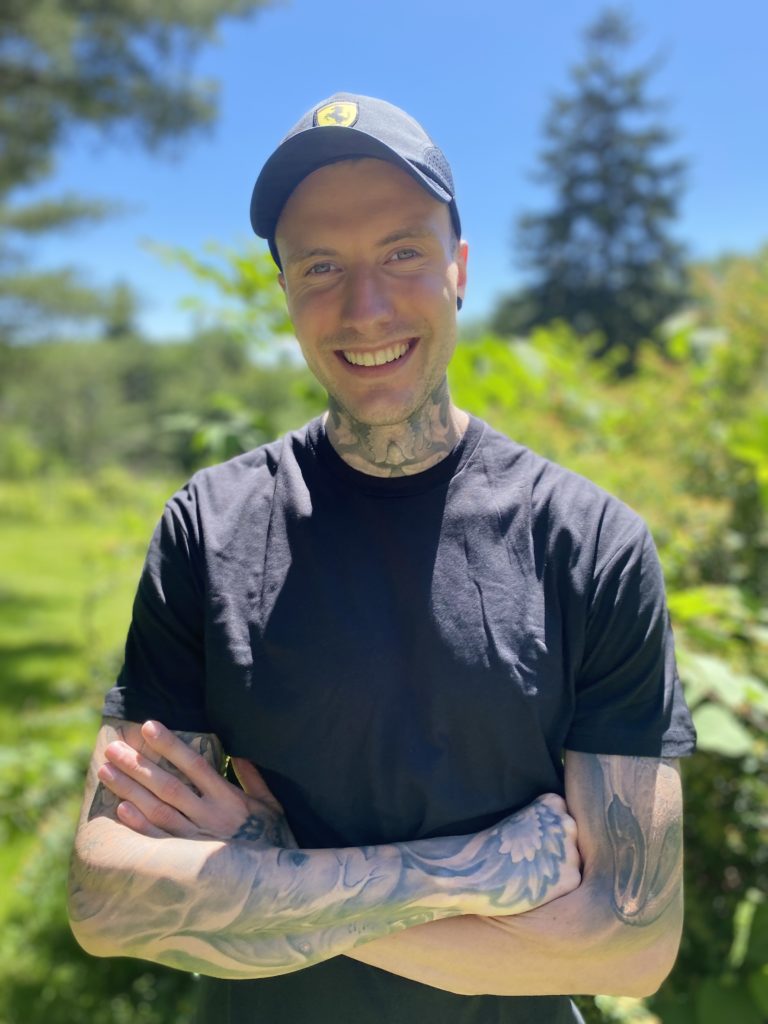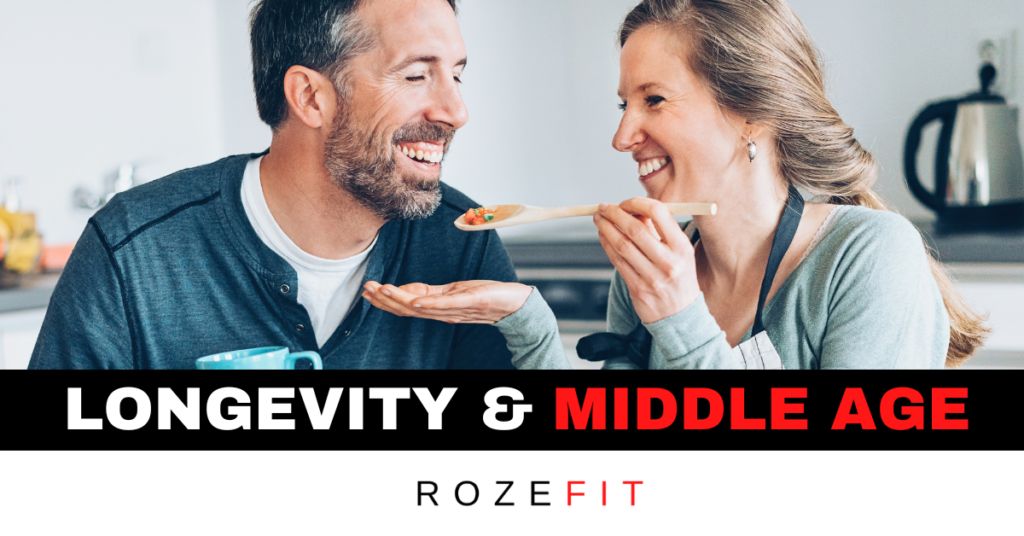My professional focus is to provide practical diet, movement, and lifestyle interventions to help middle-aged individuals improve their health.
Yet, I am nowhere near considered middle-aged myself.
I’m 28 years old at the time of writing this.
So why do I care about middle-aged people so much?
Middle Age & Its Implications
Middle age is the critical transition period in one’s life.
You will inevitably become cognizant of aging in a definitive way for the first time in your life.
Things start to change.
Your body no longer moves like it once used to.
You get out of breath easier, perhaps.
You carry more fat around your waist.
Maybe your doctor told you that your blood pressure or cholesterol is elevated.
You just don’t have the energy & stamina you once did.
And while a lot of individuals believe these so-called age-related changes are normal, I know for a fact they are not.
‘Age Related’ Changes Are Not Inevitable

They are not an inevitability if you don’t let them be.
Yes, there are certain things about aging that you simply won’t be able to slow down.
You aren’t going to magically reverse your hair turning gray for example.
But when it comes to getting back in shape so you can run around the yard with your kids without gasping for air – that’s something you can change.
The 20 extra pounds that you are tired of looking at in the mirror?
That’s something you can change.
Your high cholesterol and high blood pressure?
Absolutely something you can change.
Getting older isn’t about accepting defeat.
It’s about moving into the next phase of your life with confidence and the willingness to show up for yourself and your loved ones.
Show Up For Yourself & Loved Ones : Be Proactive!

I believe the best way to show up for yourself and your loved ones is by being proactive about your health.
There is a reason they call it a” mid-life crisis.”
The existential reality of your slow decline becomes apparent.
But the rate at which we age is a highly modifiable variable.
Yes, I promise – you will get older.
But how fast are you getting to the finish line, and in what condition are you showing up in?
I highly recommend hiring a professional to help you accomplish your health & fitness goals as you progress into your middle-aged years.
I offer coaching opportunities specifically targeted at the most common middle age health afflictions.

Lifespan vs. Healthspan
I really like this concept of lifespan vs. healthspan.
Lifespan is how long you live.
Healthspan is the quality of those years.
Sure, with modern medicine, we can extend life.
But at what cost and with what quality?

I’m not sure about you, but I certainly do not want to be a frail bed-bound 80-year-old.
I still want to be able to travel at 80, play with my kids (and grandkids, perhaps), and go on long hikes through the forest.
The things you want to do when you turn 80 might be different.
But the bottom line is this.
If you are middle-aged, there is no better time than the present to start thinking about the next 30 years of your life.
As you know, life goes by in the blink of an eye.
So don’t wait to start improving your health & fitness until you have tons of comorbidities.
Aging & Disease
I’ve written at length about three diseases that carry the most age-associated mortality risk.
Cardiovascular disease, cancer, and neurodegenerative disease.
These are the diseases that are inevitably coming for each and every one of us.
But the great thing is that there is an immense amount of simple strategies that you can start implementing today to prevent these diseases.
You will not only prevent these diseases but also feel healthier and younger.
Sure, disease prevention is great, and I focus a ton of time on it.
Endless hours of research etc.
But at the end of the day, I care most about how I feel.
The preventative stuff is really the cherry on top.
I have witnessed first hand, how powerful it is to watch someone completely transform their health during their middle-aged years.
How Much Can You Change Your Health During Middle-Age?

The magnitude of change you can experience during your middle-aged years is wild.
I have clients in their 60s who are metabolically healthier than in their 30s.
They are stronger, leaner, and have more aerobic capacity.
Their doctor is blown away by how great their blood pressure is.
And their grandkids adore being able to run around the park chasing grandpa.
Why I Coach Middle-Aged People
When I first cut my teeth as a personal trainer, I was 20 years old.
I wanted to work with athletes and turn them into powerhouses.
And guess what?
It was pretty easy, and it wasn’t that satisfying.
To get an already incredible athlete to add 30 pounds to his bench press, didn’t feel fulfilling.
It wasn’t until I got my first older client that I experienced what making a true difference in someone’s life looked like.

He was 70 years old and had one simple goal.
He wanted to be able to get onto the floor to play with his grandkids without any help.
This might sound like a piece of cake if you are 50 and are reading this.
But your physical abilities can change a lot in 20 years.
Sure, maybe my client should have started thinking about this 20 years earlier.
But what was important is that he was committing now to prioritize his health.
We worked together for two years, and by the end of that second year, he could get onto the floor quickly, do it multiple times, and even do more pushups than he could in his 30s.
To me, that was an inspiration.
Making a difference like that was something I could live with.
And ever since, I have worked almost exclusively with individuals noticing age-related changes to their health.
What Do You Want To Do During Your Eighth Decade of Life?

These age-related changes usually start around 40 and become more pronounced yearly.
Unless of course, you are implementing strategies around your health, fitness, and lifestyle.
So yes, I am only 28 years old.

But I have witnessed the consequences of what can happen if you are not proactive about your health.
And so, even at 28 years old, I’m thinking about the long game.
What do I want to be able to do during the eighth decade of life?
And what strategies am I implementing today to ensure I can do those things well into retirement?
That’s how you need to think about longevity.
It’s the long game that matters.

